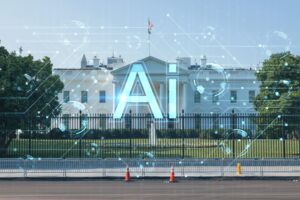
Harnessing rising expertise like AI to advance the general public good isn’t simple, and requires the work of numerous people working collectively. One of many people who was driving AI for good the previous 4 years out of the White Home was Alondra Nelson, who’s presently the Harold F. Linder Professor at The Institute for Superior Research and a 2025 BigDATAwire Individual to Watch.
BigDATAwire: First, congratulations in your choice as a 2025 BigDATAwire Individual to Watch! From 2021 to 2023, you have been the deputy assistant to President Joe Biden and appearing director and principal deputy director for science and society of the White Home Workplace of Science and Know-how Coverage (OSTP). What was your best achievement in that position?
Alondra Nelson: General, I’m proud that the Biden administration took a particular strategy to science and expertise coverage that centered on its advantages to all of the American public: their financial and academic alternatives, their well being and security, and their aspirations for his or her households and communities. President Biden’s steerage formed our strategy to local weather and power coverage, growth of the STEM ecosystem, enlargement of healthcare entry, and development of rising applied sciences comparable to quantum computing, biotechnology, and AI.
When President Biden took workplace, synthetic intelligence was turning into more and more outstanding in public discourse. There was rising pleasure about AI’s potential to rework healthcare, enhance local weather modeling and speed up clear power innovation, and enhance accessibility to authorities providers. OSTP was working to ascertain the Nationwide AI Workplace and coordinate authorities use of those highly effective applied sciences. Nevertheless, we acknowledged that we should not confuse what AI can do with whom AI ought to serve—the elemental objective of this expertise should be to learn the general public. Concurrently, public concern was rising as a result of incidents the place AI methods precipitated hurt: dad and mom wrongly arrested primarily based on defective facial recognition expertise, individuals receiving unequal medical care as a result of flawed insurance coverage algorithms, and homeseekers and jobseekers denied housing and employment alternatives due to discriminatory AI methods.
This was the context that led to the event of the Blueprint for an AI Invoice of Rights, the primary assertion of the Biden administration AI technique that balanced analysis and innovation with the individuals’s alternatives and rights. In creating the AI Invoice of Rights, we led a year-long public enter course of partaking expertise specialists, trade leaders, and even highschool scholar advocates to develop this framework. It represented the primary articulation by the U.S. authorities of how synthetic intelligence must be developed and ruled to soundly serve and empower humanity, enhance individuals’s lives, and tackle potential harms. The AI Invoice of Rights shaped the rights-based basis for President Biden’s Government Order on Protected, Safe, and Reliable Synthetic Intelligence and formed a distinctively American strategy to AI governance—one which embraces AI analysis and infrastructure growth whereas establishing essential guardrails to guard client security and construct public belief in these methods.
BDW: You may have been instrumental in shaping the dialogue round AI ethics and privateness. How do you see that dialogue shaping up in 2025, as enterprises start to take their GenAI proofs of idea into full-blown manufacturing? Do you assume trade has adequately addressed the issues round AI ethics?
AN: No, I don’t imagine most of trade has adequately addressed the necessity for AI guardrails or totally embraced the practices wanted to make this occur. Whereas some corporations developed considerate governance frameworks in the course of the earlier administration’s push for accountable AI, such because the voluntary commitments that main expertise corporations made to make sure that merchandise are secure earlier than they’re launched and constructing AI methods that prioritize safety and privateness. We’re now seeing a regulatory pendulum swing that has lowered strain on enterprises to implement sturdy safeguards.
Vice President Vance asserted in Paris on the current AI Motion Summit that issues about AI security are mere “handwringing” that would one way or the other restrict American corporations’ capability to innovate and dominate the market. It is a fallacy. There’s no tradeoff wanted between security and progress or rights and innovation. The historical past of our innovation financial system exhibits us that guardrails, requirements, and societal expectations drive builders to create higher merchandise which are extra helpful and fewer dangerous. Take into account how aviation rules introduced us safer jet journey. Now, distinction this with AI being utilized in air site visitors management, which the Trump administration is discussing implementing inside weeks, with few particulars out there for public scrutiny, particularly regarding given how generative AI presently produces inaccurate responses and nonexistent photographs.
We’re seeing some corporations retreat from their earlier commitments because the AI priorities of the second Trump administration emerge. For instance, a number of organizations that had established pre-deployment assessment processes have scaled again these initiatives. With out new laws from Congress, we now observe main tech corporations calling for looser requirements, echoing messages from the White Home.
Nevertheless, some enterprises say they proceed to prioritize security, rights, and public belief regardless of this political shift. Many acknowledge that constructing accountable AI isn’t nearly compliance—it’s about adoption, creating merchandise that customers and enterprise companions will belief. Whereas regulatory necessities fluctuate, public expectations for AI that minimizes hurt proceed to develop.
BDW: GenAI was launched to the general public in 2022, and Geoffery Hinton and others warned in 2024 that it may destroy humanity. However few individuals are sounding that alarm as of late. Has the hazard of AI handed?
AN: Considerations concerning the dangers and harms of AI preceded the industrial launch of ChatGPT and solely rose after this, together with with the March 2023 open “pause” letter. The hazard has not handed in any respect. There are, basically, two sorts of risks: those who we may think about sooner or later, and those who exist now and are impacting individuals’s day by day lives. We already know quite a bit concerning the second variety: algorithmic biases are unfairly denying individuals mortgages; deepfake photographs getting used to harassing and terrorizing younger individuals on-line; and and AI methods offering incorrect data that results in penalties starting from voters going to flawed polling places to sufferers receiving improper medical recommendation.
The primary form of hazard — a synthetic common intelligence turning in opposition to people — I put that within the class of an trade speaking level. They need us to imagine that the expertise is smarter than we’re so we’re confused about methods to rein it in. Lots of the individuals selling that view stand to make very substantial earnings from unrestricted growth. They may additionally make very substantial earnings from considerate and secure AI growth, as a result of extra individuals would wish to use their product.
BDW: How do you stability the dangers of AI with the chance?
AN: I had the chance to handle that query in a personal working session of world leaders, hosted by President Macron in Paris in February. Whereas I spoke concerning the threats of synthetic intelligence, concerning the methods this expertise can perpetuate discrimination, threaten safety, and disrupt social cohesion throughout continents, I additionally closed with a phrase of hope:
The printing press didn’t simply print books – it democratized information. The phone didn’t simply transmit voice – it linked households throughout nice distances. The web did greater than hyperlink computer systems – it created unprecedented alternatives for collaboration and creativity.
Now we have the instruments to information AI to work for all of our individuals.
… If we advance considerate governance, we are able to guarantee AI methods improve somewhat than diminish human rights and dignity.
—
We will create methods that increase alternative somewhat than focus energy. We will construct expertise that strengthens democracy somewhat than undermines it.
BDW: What are you able to inform us about your self exterior of the skilled sphere – distinctive hobbies, favourite locations, and many others.? Is there something about you that your colleagues is perhaps shocked to study?
AN: Exterior my skilled sphere, I’m an avid science fiction fanatic. I really like each studying traditional and up to date sci-fi novels and watching thought-provoking science fiction movies and sequence. These narratives usually discover the very technological and moral questions I grapple with in my work, however in ways in which stretch the creativeness and problem our assumptions.
I additionally discover great worth in lengthy walks, whether or not navigating metropolis streets or mountaineering via nature. These walks present important pondering time and perspective that assist stability the depth of coverage work and educational analysis.
Once I can, I prioritize journey with my household.
You may learn the remainder of the BigDATAwire 2025 Folks to Watch interviews right here.



